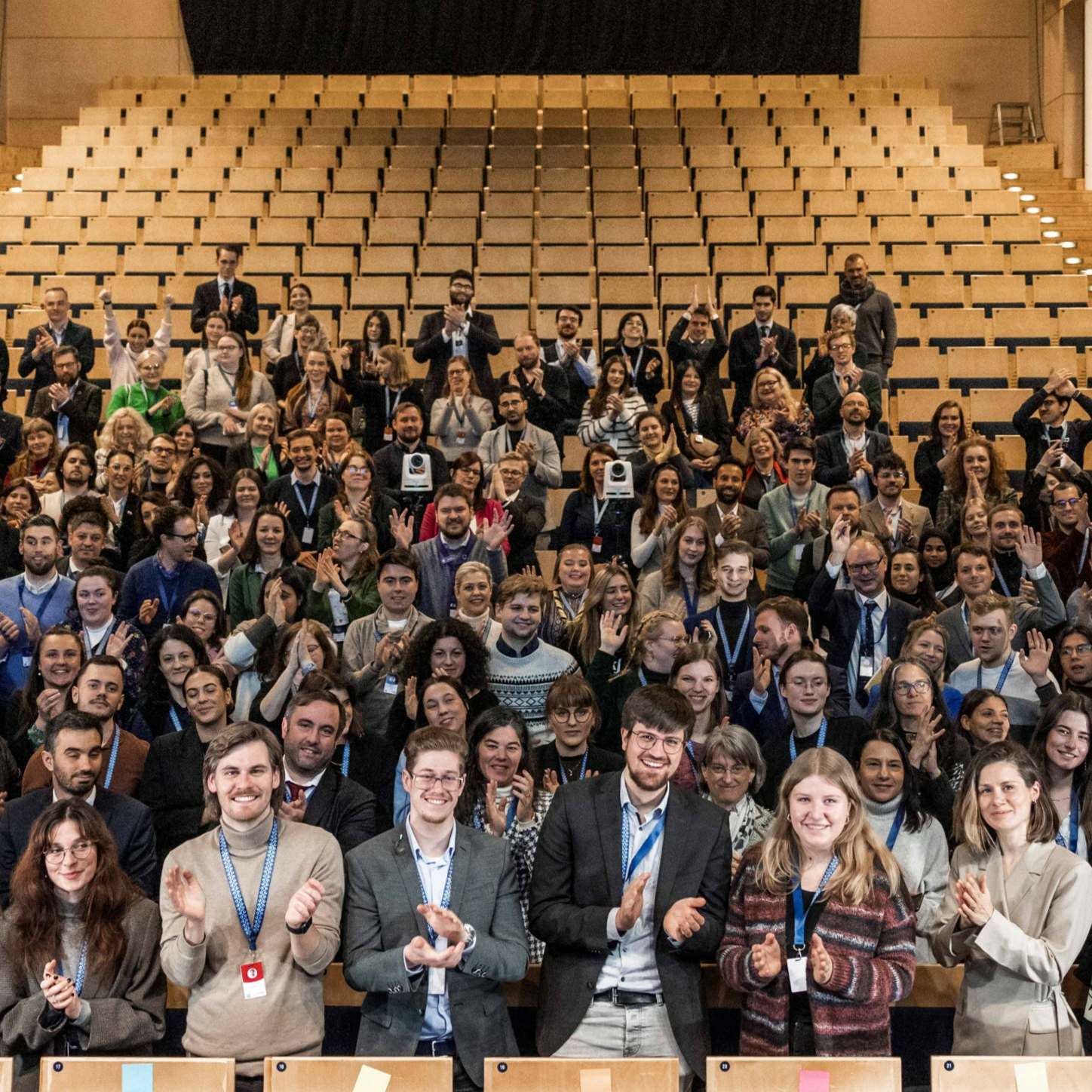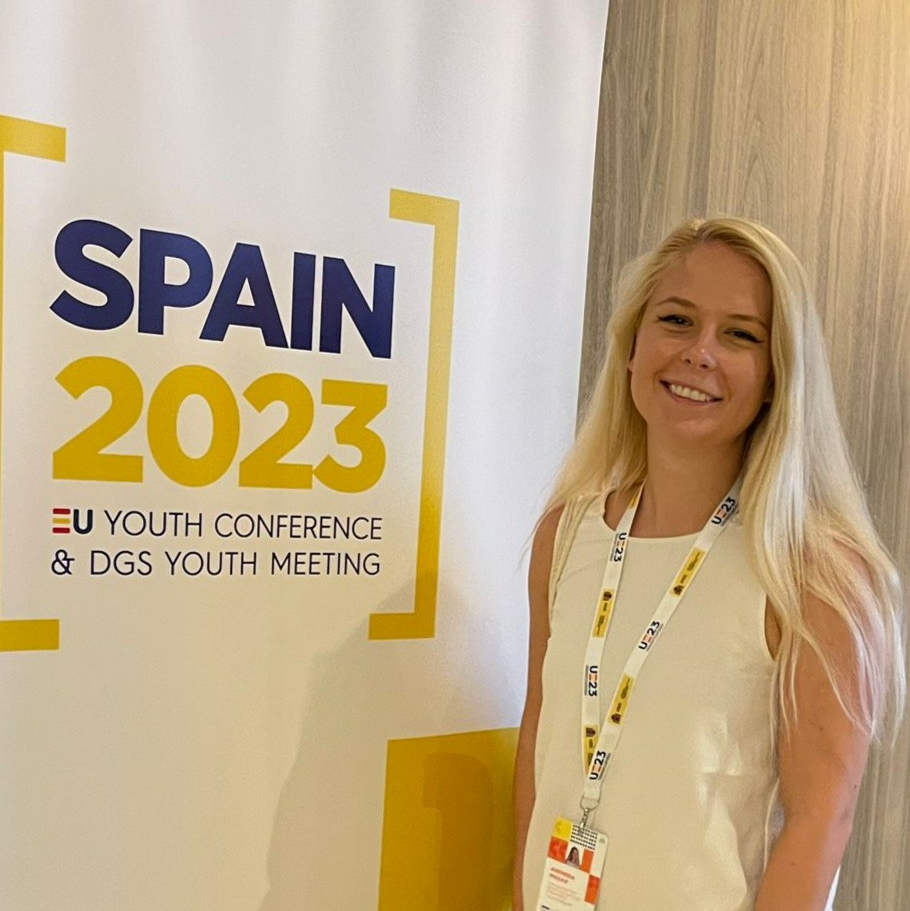YFU participated to the Youth Conference in Sweden that took place on March 20th-22nd in Växjö and it concluded the 9th cycle of the Youth Dialogue. This cycle ran from 2022 to mid-2023 over the course of the French, Czech and Swedish EU Presidencies. Our YFU Representative, Sebastian Lindt, was present at the conference together with other INGYOs from the European Youth Forum and has contributed to the consultations which took place under this presidency. In the consultation, young people from a diverse range of marginalized backgrounds were asked what could enable them to take advantage of EU-wide mobility opportunities related to the environment. The young people consulted identified a need to:
Youth Dialogue
EU Youth Dialogue and EEE-YFU's involvement
The EU Youth Dialogue contributes to realising the vision of young people by mobilising the EU level policy instruments as well as inciting stakeholder actions at a national, regional and local level. Young people all over Europe want their voice to be heard, however there is often a big gap between them and decision-makers, that makes it difficult for these ideas to be implemented. The EU Youth Dialogue is a platform for ongoing discussions between young people, youth organizations, decision-makers, and relevant civil society actors. It facilitates joint reflection on and consultation about European youth cooperation priorities, implementation, and follow-up.
Why has the EU Youth Dialogue been established ?
This dialogue mechanism has been put into place, in order to ensure that the opinion, views and needs of young people and youth organizations are taken into account when defining the EU's youth policies, aiming to expand participation of decision-makers and underrepresented young individuals in the EU Youth Strategy.
How is the EU Youth Dialogue conducted?
The dialogue with policy makers and other dialogue activities happens in 18-month work cycles. Each cycle focuses on a different theme set by the Council of Youth Ministers. The Trio Presidency takes the lead role with regard to steering the implementation of the EU Youth Dialogue, in close cooperation with the European Commission and the National Agencies, as well as with the European Youth Forum and other youth civil society representatives, within a coordination group. Once national and European activities are over, the results are compiled, analysed and further discussed at the EU Youth Conferences. There, youth representatives and policy makers have the opportunity to work together and present a joint message to the EU. These conferences take place three times per year and are hosted by the country that holds the EU Presidency. The conclusions based on the EU Youth dialogue activities will be presented to the Council of the European Union. The Council might then adopt a policy document containing the views of young people.
10th and current cycle
The motto of the 10th cycle (from the mid-2023 to end of 2024) is: “WE NEED YOUTH”.The thematic priority is therefore directly connected to the Youth Goals number 3: Inclusive Societies. Currently the Trio Presidency (Spain - Belgium - Hungary) assumes a leading role in guiding the implementation of the EU Youth Dialogue. This involves close collaboration with the European Commission, National Agencies, the European Youth Forum, and other youth civil society representatives within a coordination group.
The three EU youth conferences organised during the cycle are:
• EUYC Spain: start dialogue / consultation phase
• EUYC Belgium: end consultation and start implementation phase
• EUYC Hungary: end implementation phase and translation to policy within the Council of the EU

EEE-YFUs involvement in the 9th EUYD cycle
1. Lower the threshold for accessing opportunities by removing costs, offering short term (2-3 day) opportunities, simplifying administrative procedures, and connecting directly via school or local projects.
2. Increase funding and support to the organisations which promote mobility and solidarity projects.
3. Focus on local environmental initiatives that are connected to and affect marginalized young people's own communities.
4. Increase publicity and outreach, including delivering mobility opportunities connected to schools as well as by working with organisations, professionals, and previous participants, who have “bonds of trust” with young people in marginalised circumstances.
5. Emphasise the personal benefits of taking part, especially with regard to impact on employability and employment skills, and make opportunities more attractive.
6. Provide flexible, high quality and professional support that can meet a variety of different accessibility needs including resourcing organisations working with young people in marginalised circumstances to support environmental mobility opportunities.

EEE-YFU's involvement in the 10th EUYD cycle
EE-YFU was present at the Youth Conference organised by the Spanish Presidency at the Council of the EU 2nd - 4th of October 2023 in Alicante, marking the start of the 10th EU Youth Dialogue cycle. The topic of this cycle is inclusive societies and will be coordinated by the trio of Spain, Belgium and Hungary. For 3 days, YFU together with 10 other International NGOs and respresentitatives from the National Youth Councils from all EU member states gathered to offer input to the 3 main questions:
1. What are the current barriers to the full inclusion of all young people in society, especially young people with fewer opportunities?
2. What sort of effective support is currently being given to enable the full inclusion of all young people in society, especially young people with fewer opportunities?
3. What further actions need to be taken to enable the inclusion of all young people in society, especially young people with fewer opportunities?
The results of this consultation will feed into a Council Recommendation to the Member States at the end of the trio presidency.
